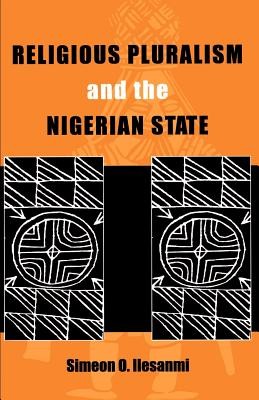
- We will send in 10–14 business days.
- Author: Simeon Olusegun Ilesanmi
- Publisher: Ohio University Press
- ISBN-10: 0896801942
- ISBN-13: 9780896801943
- Format: 14 x 21.4 x 1.8 cm, softcover
- Language: English
- SAVE -10% with code: EXTRA
Religious Pluralism and the Nigerian State (e-book) (used book) | bookbook.eu
Reviews
Description
In the case of Nigeria, scholarship on religious politics has not adequately taken into account the pluralistic context and the idealistic pretensions of the state that inhibit the possibility of forging an enduring civic amity among Nigeria's diverse groups. Ilesanmi proposes a new philosophy or model of religio-political interaction, which he calls dialogic politics. Dialogic politics celebrates pluralism and suggests that religious institutions he construed as mediating structures functioning as buffers between individual citizens in search of existential meaning and cultural identity and the impersonal state, which tends to gravitate toward instrumental objectives. Ilesanmi's study offers a fresh perspective on the complex relations between political attitudes and religious convictions.
EXTRA 10 % discount with code: EXTRA
The promotion ends in 20d.17:08:29
The discount code is valid when purchasing from 10 €. Discounts do not stack.
- Author: Simeon Olusegun Ilesanmi
- Publisher: Ohio University Press
- ISBN-10: 0896801942
- ISBN-13: 9780896801943
- Format: 14 x 21.4 x 1.8 cm, softcover
- Language: English English
In the case of Nigeria, scholarship on religious politics has not adequately taken into account the pluralistic context and the idealistic pretensions of the state that inhibit the possibility of forging an enduring civic amity among Nigeria's diverse groups. Ilesanmi proposes a new philosophy or model of religio-political interaction, which he calls dialogic politics. Dialogic politics celebrates pluralism and suggests that religious institutions he construed as mediating structures functioning as buffers between individual citizens in search of existential meaning and cultural identity and the impersonal state, which tends to gravitate toward instrumental objectives. Ilesanmi's study offers a fresh perspective on the complex relations between political attitudes and religious convictions.


Reviews